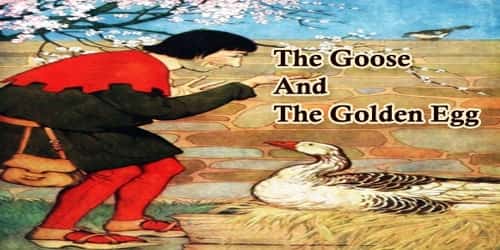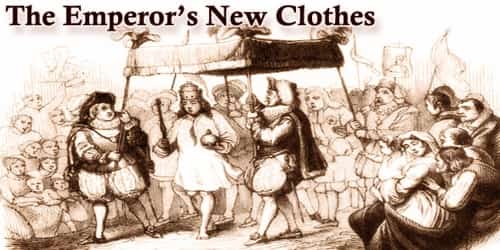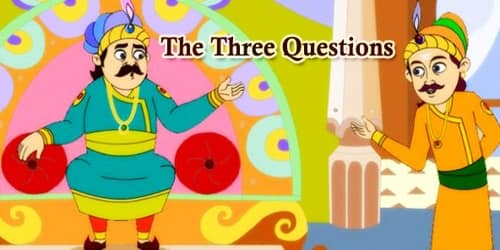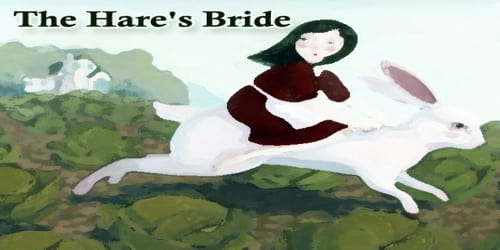On my return home from my sixth voyage, I had entirely given up all thoughts of again going to sea; for, besides that my age now required rest, I was resolved no more to expose myself to such risks as I had encountered, so that I thought of nothing but to pass the rest of my days in tranquility.
One day, however, an officer of the caliph’s inquired for me. “The caliph,” said he, “has sent me to tell you that he must speak with you.” I followed the officer to the palace, where, being presented to the caliph, I saluted him by prostrating myself at his feet. “Sindbad,” said he to me, “I stand in need of your services; you must carry my answer and present to the King of Serendib.”
This command of the caliph was to me like a clap of thunder. “Commander of the Faithful,” I replied, “I am ready to do whatever your majesty shall think fit to command, but I beseech you most humbly to consider what I have undergone. I have also made a vow never to leave Bagdad.”
Perceiving that the caliph insisted upon my compliance, I submitted and told him that I was willing to obey. He was very well pleased and ordered me one thousand sequins for the expenses of my journey.
I prepared for my departure in a few days. As soon as the caliph’s letter and present were delivered to me, I went to Bussorah, where I embarked, and had a very prosperous voyage. Having arrived at the Isle of Serendib, I was conducted to the palace with much pomp, when I prostrated myself on the ground before the king. “Sindbad,” said the king, “you are welcome; I have many times thought of you; I bless the day on which I see you once more.” I made my compliments to him, and thanked him for his kindness, and delivered the gifts from my august master.
The caliph’s letter was as follows:
“Greeting, in the name of the Sovereign Guide of the Right Way, from the servant of God, Haroun-al-Raschid, whom God hath set in the place of vicegerent to His Prophet, after his ancestors of happy memory, to the potent and esteemed Raja of Serendib.”
“We receive your letter with joy, and send you from our imperial residence, the garden of superior wits. We hope when you look upon it you will perceive our good intention, and be pleased with it. Farewell.”
The caliph’s present was a complete suit of cloth of gold, valued at one thousand sequins; fifty robes of rich stuff; a hundred of white cloth, the finest of Cairo, Suez, and Alexandria; a vessel of agate, more broad than deep, an inch thick, and half a foot wide, the bottom of which represented in bas-relief a man with one knee on the ground, who held a bow and an arrow, ready to discharge at a lion. He sent him also a rich tablet, which, according to tradition, belonged to the great Solomon.
The King of Serendib was highly gratified at the caliph’s acknowledgment of his friendship. A little time after this audience I solicited leave to depart, and with much difficulty obtained it. The king, when he dismissed me, made me a very considerable present. I embarked immediately to return to Bagdad but had not the good fortune to arrive there as speedily as I had hoped. God ordered it otherwise.
Three or four days after our departure we were attacked by pirates, who easily seized upon our ship because it was not a vessel of war. Some of the crew offered resistance, which cost them their lives. But for myself and the rest, who were not so imprudent, the pirates saved us and carried us into a remote island, where they sold us.
I fell into the hands of a rich merchant, who, as soon as he bought me, took me to his house, treated me well, and clad me handsomely as a slave. Some days after he asked me if I understood any trade. I answered that I was no mechanic, but a merchant, and that the pirates who sold me had robbed me of all I possessed. “Tell me,” replied he, “can you shoot with a bow?” I answered that the bow was one of my exercises in my youth. He gave me a bow and arrows, and, taking me behind him on an elephant, carried me to a thick forest some leagues from the town. We penetrated a great way into the wood, and when he thought fit to stop, he bade me alight; then showing me a great tree, “Climb up that,” said he, “and shoot at the elephants as you see them pass by, for there is a prodigious number of them in this forest, and if any of them fall, come and give me notice.” Having spoken thus, he left me victuals and returned to the town, and I continued upon the tree all night.
I saw no elephant during the night, but the next morning, at the break of day, I perceived a great number. I shot several arrows among them, and at last one of the elephants fell, when the rest retired immediately and left me at liberty to go and acquaint my patron with my success. When I had informed him, he commended my dexterity and caressed me highly. We went afterward together to the forest, where we dug a hole for the elephant; my patron designing to return when it was rotten, and take his teeth to trade with.
I continued this employment for two months. One morning, as I looked for the elephants, I perceived with extreme amazement that, instead of passing by me across the forest, as usual, they stopped, and came to me with a horrible noise, in such numbers that the plain was covered and shook under them. They surrounded the tree in which I was concealed, with their trunks uplifted, and all fixed their eyes upon me. At this alarming spectacle, I continued immovable and was so much terrified that my bow and arrows fell out of my hand.
My fears were not without cause; for after the elephants had stared upon me some time, one of the largest of them put his trunk round the foot of the tree, plucked it up, and threw it on the ground. I fell with the tree, and the elephant, taking me up with his trunk, laid me on his back, where I sat more like one dead than alive, with my quiver on my shoulder. He put himself at the head of the rest, who followed him in line, one after the other, carried me a considerable way, then laid me down on the ground, and retired with all his companions.
After having lain some time, and seeing the elephants gone, I got up and found I was upon a long and broad hill, almost covered with the bones and teeth of elephants. I doubted not but that this was the burial-place of the elephants, and that they carried me thither on purpose to tell me that I should forbear to kill them, as now I knew where to get their teeth without inflicting injury on them. I did not stay on the hill, but turned toward the city; and after having traveled a day and night, I came to my patron.
As soon as my patron saw me, “Ah, poor Sindbad!” exclaimed he, “I was in great trouble to know what was become of you. I have been at the forest, where I found a tree newly pulled up, and your bow and arrows on the ground, and I despaired of ever seeing you more. Pray to tell me what befell you.” I satisfied his curiosity, and both of us set out the next morning to the hill. We loaded the elephant which had carried us with as many teeth as he could bear; and when we were returned, my master thus addressed me: “Hear now what I shall tell you. The elephants of our forest have every year killed us a great many slaves, whom we sent to seek ivory. For all the cautions we could give them, those crafty animals destroyed them one time or another. God has delivered you from their fury and has bestowed that favor upon you only. It is a sign that He loves you, and has some use for your service in the world. You have procured me incredible wealth; and now our whole city is enriched by your means, without any more exposing the lives of our slaves. After such a discovery, I can treat you no more like a slave, but as a brother. God bless you with all happiness and prosperity. I henceforth give you your liberty; I will also give you riches.”
To this, I replied: “Master, God preserve you. I desire no other reward for the service I had the good fortune to do to you and your city but leave to return to my own country.” “Very well,” said he, “the monsoon will in a little time bring ships for ivory. I will then send you home.” I stayed with him while waiting for the monsoon; and during that time we made so many journeys to the hill, that we filled all our warehouses with ivory. The other merchants who traded in it did the same, for my master made them partakers of his good-fortune.
The ships arrived at last, and my master himself having made a choice of the ship wherein I was to embark, loaded half of it with ivory on my account, laid in provisions in abundance for my passage, and besides obliged me to accept a present of some curiosities of the country of great value. After I had returned him a thousand thanks for all his favors I went aboard. We stopped at some islands to take in fresh provisions. Our vessel being come to a port on the mainland in the Indies, we touched there, and, not being willing to venture by sea to Bussorah, I landed my proportion of the ivory, resolving to proceed on my journey by land. I realized vast sums by my ivory, bought several rarities, which I intended for presents, and when my equipage was ready, set out in company with a large caravan of merchants. I was a long time on the journey, and suffered much, but was happy in thinking that I had nothing to fear from the seas, from pirates, from serpents, or from the other perils to which I had been exposed.
I at last arrived safely at Bagdad, and immediately waited upon the caliph, to give him an account of my embassy. He loaded me with honors and rich presents, and I have ever since devoted myself to my family, kindred, and friends.
Sindbad here finished the relation of his seventh and last voyage, and then addressing himself to Hindbad, “Well, friend,” said he, “did you ever hear of any person that suffered so much as I have done? Is it not reasonable that, after all this, I should enjoy a quiet and pleasant life?” As he said these words, Hindbad kissed his hand, and said, “Sir, my afflictions are not to be compared with yours. You not only deserve a quiet life but are worthy of all the riches you possess, since you make so good a use of them. May you live happily for a long time.” Sindbad ordered him to be paid another hundred sequins and told him to give up carrying burdens as a porter, and to eat henceforth at his table, for he wished that he should call his life to have reason to remember that he henceforth had a friend in Sindbad the Sailor.
















